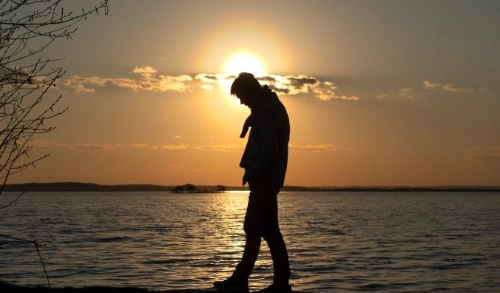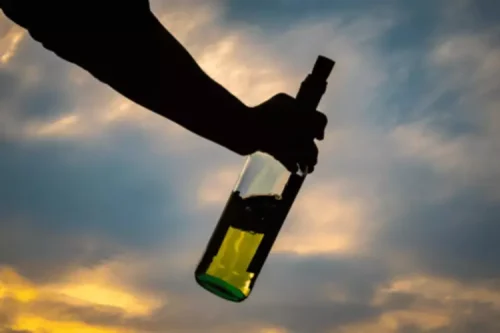
Therefore, not drinking, especially for extended periods of time, can lead to significant improvements in sleep and sleep quality. “Because you may sleep more deeply when not drinking, you may notice waking up feeling sharper and more refreshed the next day,” he adds. McMahon says quitting alcohol might cause some sleep disturbances or insomnia initially, but sleep quality and quantity https://ecosoberhouse.com/ will improve with continued abstinence. “Proper sleep helps us maintain physical, mental and emotional health, so it’s an important consideration,” she says. If you want to level up your health, cutting back significantly on alcohol yields several physical and mental health perks. Unstable vital signs increase the risk of complications and can be managed with medications.
Here’s What Happens to Your Body When You Stop Drinking for 30 Days
- Cognitive, emotional, and sleep disturbances can occur at even moderate levels of drinking.
- If you have a history of severe alcohol dependence, he recommends consulting a health care professional before quitting, as abrupt cessation can be life threatening.
- Comparing the emotions that come up when you have a drink with the feelings you experience when abstaining also helps you recognize when drinking doesn’t fix the problems you’re trying to manage.
- Cognitive functions—including problem solving, decision making and self-regulation skills—can also improve with continued sobriety, adds Dr. Kellogg.
“If you have cancer and you’re worried about it growing then you should stop,” he explained. For the wider population, he emphasized that when you stop drinking, you not only feel better but you also sleep better and your physical health improves. One downside of quitting for some though, he said, could be the social side of drinking and not wanting to feel left out.

How do you detox your liver?
For those with an alcohol use disorder, there are effective prescription medications that can be helpful when abstaining from alcohol. Acute alcohol withdrawal symptoms can range from mild to severe, and the severe symptoms can be dangerous or even life-threatening. That’s why that initial physician consultation is so important, and with Monument, you can see a physician using your existing health insurance. Prices for visits are completely transparent and you’ll be told upfront what the cost will be based on your specific insurance.

Improved Cognition

If you’re worried about your drinking, get in touch with your local GP surgery, who will be able to help. Or if you’re just thinking about taking a break from alcohol, for your own reasons or as part of a challenge, you will be joining millions of others. Anecdotal evidence suggests the effects of a detox from alcohol are gradual over the entire four-week process; so there’s not a set timeline for each to kick in at one time. A person with delirium tremens needs to be hospitalized until the symptoms can be controlled.

Inpatient treatment, or staying at a hospital or care facility, may be necessary for someone with moderate to severe symptoms of alcohol withdrawal. Inpatient treatment allows healthcare professionals to monitor you for DT or hallucinations, monitor your vitals, and administer fluids or medicine intravenously if needed. The symptoms of alcohol withdrawal delirium include withdrawal seizures that can occur between 8 and 28 hours after your last drink. Signs of an impending seizure include tremors, increased blood pressure, overactive reflexes, and high temperature and pulse.
- Alcohol causes inflammation in the lining of your stomach, causing bloat and other digestive issues.
- Consuming more than that can lead to liver damage and heart disease, and increase your risk for some cancers.
- Alcohol withdrawal (alcohol withdrawal syndrome) is a range of symptoms that can happen if you stop or significantly reduce alcohol intake after long-term use.
- If you’re keeping up with this average (or less), the damage from alcohol is most likely minimal.
If your pattern of drinking results in repeated significant distress and problems functioning in your daily life, you likely have alcohol use disorder. However, even a mild disorder can escalate and lead to serious problems, so early treatment what happens when you stop drinking alcohol is important. If you’re a heavy drinker, you might notice symptoms of alcohol withdrawal as soon as eight hours after going sober. Alcohol withdrawal symptoms can be greatly reduced or even eliminated with proper medical care.
Alcohol support services
Very often, people presenting to general practitioners with common conditions will not tell their doctor they are drinking two bottles of wine a day. According to Larson, severe alcoholic hepatitis could be fatal in 30 days in half of the patients who develop this condition. She said that patients who survive and make an effort to avoid alcohol can still improve liver function, even though the healing could take months. About 90% of heavy drinkers will develop alcoholic liver disease, while 20–40% will develop alcoholic hepatitis, which occurs when the liver becomes damaged and inflamed. If you manage to limit alcohol consumption beyond a monthlong break, it could improve your heart health and reduce the risk of stroke and certain cancers.
- For every drink you consume, have a large glass of water before moving on to your next.
- This includes beer, wine, and liquor, as well as products that contain alcohol such as rubbing alcohol and vanilla extract.
- Cutting out alcohol for 30 days can have benefits for those who drink more than the recommended limit of two drinks a day for men and one drink a day for women.
- You can drink for years and years until eventually your liver starts to become inflamed, without any pain, which silently proceeds to fatty liver disease and then to cirrhosis.
After One Week
Even just one bout of drinking too much may weaken your body’s germ-fighting power for up to 24 hours. Over time, large amounts of alcohol blunt your immune system and your body’s ability to repair itself. Alcohol plays a role in at least half of all serious trauma injuries and deaths from burns, drownings, and homicides. It’s also involved in four out of 10 fatal falls and traffic crashes, as well as suicides. Even cutting back your drinking by a third can lower the number of injuries and sick days. When you stop consuming alcohol after prolonged, heavy use, your CNS can’t respond or regulate itself fast enough.
